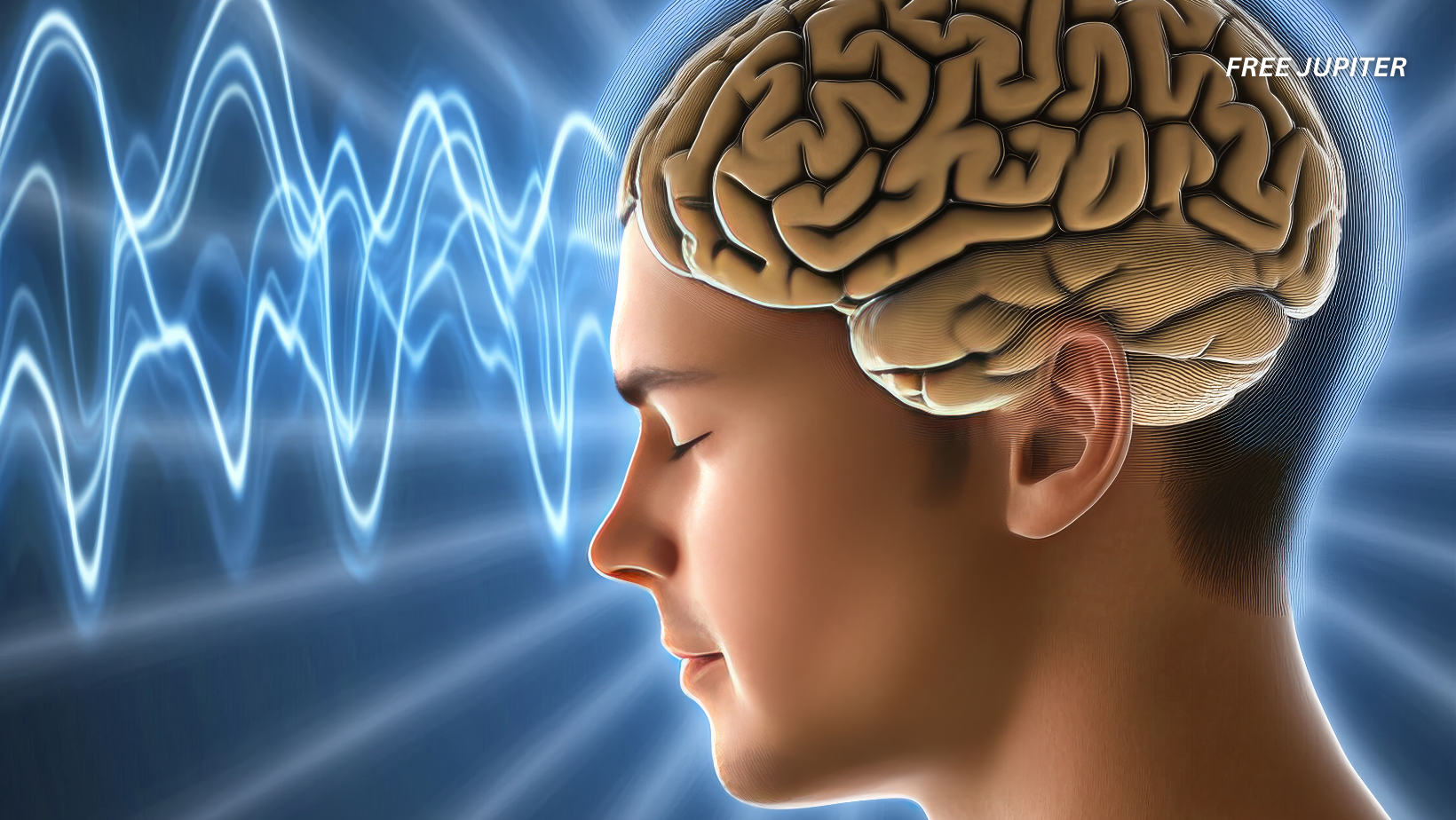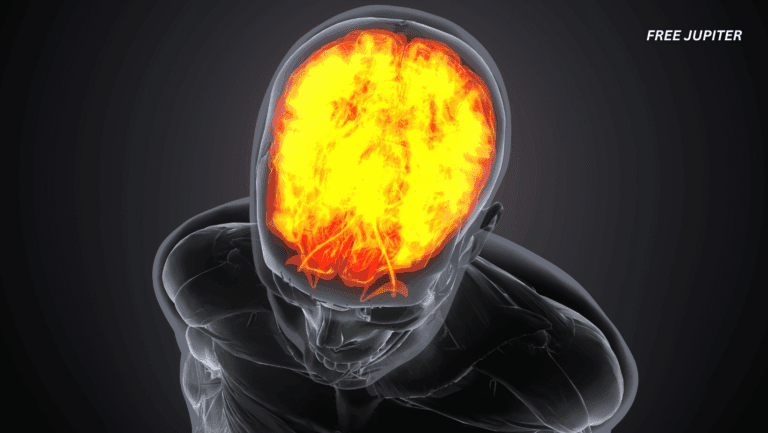Brains are full of mysteries, but here’s one you probably haven’t heard before: your brain has a hidden rhythm, and how well you keep up with it might reveal just how sharp you are.
A new study suggests that people with higher intelligence don’t just think faster or remember more—they actually have brains that synchronize more smoothly when faced with tough mental tasks. Scientists call this “theta connectivity,” but don’t worry, you don’t need to be a neuroscientist to get the gist.
Think of it like this: your brain is less like a soloist and more like an orchestra. The smarter the brain, the better the musicians sync up to play in perfect time.
What on Earth Is Theta Connectivity?
Our brains are constantly buzzing with electrical activity. Among these signals, there’s a particular rhythm called the “theta wave”—a slow brain wave that pulses at around 4 to 8 beats per second. These waves show up when we’re focusing hard, learning something new, or juggling tasks.
When multiple brain regions lock into this rhythm together, scientists call it theta connectivity. It’s basically your brain’s way of pulling its team members together to handle pressure. And the more in sync they are, the better you can adapt, think, and problem-solve.
Dr. Anna-Lena Schubert from Johannes Gutenberg University Mainz in Germany explains it this way: people whose brains show stronger synchronization in the midfrontal region (a spot just above your forehead, behind the skin) are usually better at tasks that demand quick reasoning and focus. In other words, it’s not just about how much brainpower you have—it’s about how well your brain cells dance together.
Read more: Research Shows That Music Significantly Boosts Infant Brain Development
How the Study Worked
To test this theory, Schubert and her colleagues recruited 148 adults between the ages of 18 and 60. First, everyone took classic memory and intelligence tests—nothing too exotic, just standard ways psychologists measure brainpower.
Then came the fun part: participants put on EEG caps, those quirky headpieces covered in sensors that read brain activity, and were asked to complete three tricky but manageable challenges:
- The Number Game – Participants saw digits from 1 to 9 and had to quickly decide if the number was bigger or smaller than 5, or whether it was odd or even.
- The Navon Puzzle – They were shown a big shape made out of smaller shapes (like a giant letter H made up of tiny S’s). Sometimes they had to name the big picture, sometimes the tiny details.
- The Letter-Number Switch – Pairs of letters and numbers flashed on screen, and participants had to decide either if the number was above or below 5, or if the letter was a vowel or consonant.
None of these tasks are particularly tough on their own, but the catch was that the rules kept switching. The idea was to see how quickly people could adapt to changing instructions—and whether their brains’ theta waves revealed anything about their performance.
What They Found
The results were striking. People who scored higher on intelligence and memory tests also showed stronger theta connectivity during these rapid-fire challenges. Their brains weren’t just working harder—they were working smarter, coordinating more efficiently as the rules changed.
As Schubert put it:
“People with stronger midfrontal theta connectivity are often better at maintaining focus and tuning out distractions, whether it’s ignoring your buzzing phone while working or reading calmly in a noisy train station.”
In short, intelligence wasn’t about never losing focus. It was about the ability to shift gears quickly—to reorient, adapt, and carry on. The brain’s midfrontal region acted like a conductor, guiding other regions to switch smoothly between tasks and decisions.
Why This Matters
The idea that intelligence is linked to brain rhythm coordination adds an intriguing piece to the puzzle of how our minds work. Instead of seeing intelligence as just raw horsepower (like having a faster processor in a computer), this research suggests it’s also about flexibility—the ability to sync up and adapt under pressure.
This opens the door for new questions: Could theta connectivity be used as a kind of brain-based marker of intelligence? Might it one day help in diagnosing cognitive conditions or tailoring brain-training programs?
Schubert is cautious. She emphasizes that we’re a long way from apps or tools that could “measure your smarts” just by reading your brain waves. But the findings lay important groundwork for future studies.
Read more: A Brain Chip Can Now Read Human Thoughts With 74% Accuracy
Related Brain Rhythms Worth Knowing
While theta waves are stealing the spotlight here, they’re not the only rhythm your brain plays with:
- Alpha waves (8–12 Hz): These dominate when you’re calm but alert, like when you’re daydreaming or meditating. They’re often called the brain’s “idle mode.”
- Beta waves (12–30 Hz): Faster, active waves linked to problem-solving, planning, and sometimes anxiety.
- Delta waves (0.5–4 Hz): The slowest waves, showing up mostly during deep, restorative sleep.
- Gamma waves (30+ Hz): Fast, high-energy rhythms often associated with learning, memory, and even moments of insight.
Each type of brainwave contributes to different mental states, and scientists are just beginning to untangle how these rhythms interact. Theta waves, in particular, stand out because they’re so central to focus, memory, and adaptability.
A Bigger Picture: The “Flexible Mind” Advantage
This study fits neatly into a larger body of research suggesting that intelligence isn’t just about knowing facts or solving puzzles quickly. It’s about flexibility.
Psychologists call this cognitive control—the brain’s ability to shift behavior, thoughts, and emotions to match the situation. Imagine being able to smoothly switch from small talk with a friend to solving a math problem to calming yourself during an argument. That mental agility is a hallmark of higher intelligence.
In fact, other studies back this up. For example:
- Bilingual brains often show stronger cognitive flexibility, since switching between languages works the same mental “gear-shifting” muscles.
- Musicians tend to have enhanced connectivity between brain regions, possibly explaining why playing an instrument is linked to sharper thinking and memory in old age.
- Meditation practitioners sometimes show increased theta activity, suggesting that training your attention may literally reshape your brain rhythms.
Where Do We Go From Here?
So, what does this mean for the average person? For now, it’s mostly about awareness. Knowing that intelligence is partly about flexibility might shift how we think about learning and problem-solving. It’s not about grinding harder but about training your brain to stay adaptable.
Simple activities like playing strategy games, learning a new language, or practicing mindfulness could, in theory, give your brain more practice at synchronizing its rhythms. While we can’t yet hook ourselves up to EEGs at home to check our theta waves (and probably shouldn’t), the principle stands: keeping your brain challenged and flexible may help keep it sharper.
Read more: The Science Behind Resilience: How the Brain Rewires After A Setback
The Bottom Line
Your brain isn’t just a static machine—it’s a living orchestra, with rhythms that rise and fall depending on what you’re doing. This new study suggests that the smarter the brain, the more in sync the players are, especially when the music suddenly changes.
Intelligence, then, might not be about holding onto one thought for dear life, but about being able to pivot gracefully when the situation demands it. And that’s a hopeful idea: we don’t need to think of intelligence as a fixed trait, but as something that grows with practice, adaptability, and maybe even a little rhythm.
Featured image: Freepik.
Friendly Note: FreeJupiter.com shares general information for curious minds. Please fact-check all claims and double-check health info with a qualified professional. 🌱










